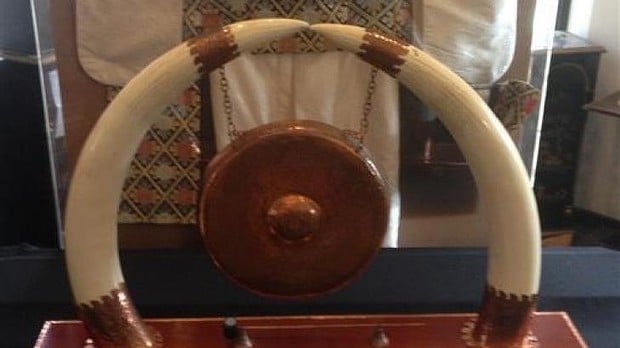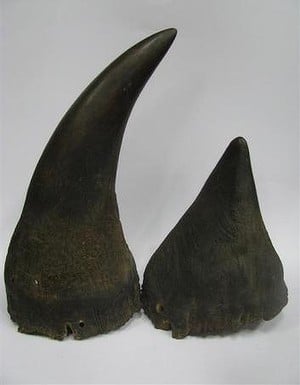
Humane Society International (HSI) and Greenpeace Australia Pacific have welcomed the statement by Lawsons auctioneers that they have withdrawn two black rhino horns and a pair of elephant tusks from their auction due to take place this Friday (November 14), following a short public campaign.
HSI first wrote to Lawsons auctioneers in August but the group says it received no response to its repeated communications.
It then launched a social media campaign on this issue and, after thousands of outraged Australians yesterday contacted Lawsons, CEO Martin Farrah confirmed their plans to withdraw the rhino horns from sale.
‘The withdrawal from sale of the pair of black rhino horns this Friday is a welcome first step, said HSI’s Alexia Wellbelove yesterday.
Lawsons still planned to go ahead with the sale of the elephant tusks, however, but after continued lobbying, Fairfax media reported the company also withdrew those items.
‘The overwhelming response to this campaign shows that Australians simply won’t tolerate this kind of out-dated and brutal trade, said Greenpeace Communications Manager James Lorenz. ‘It also shows the power people can have when we get together to bring about change.

Black rhinos are critically endangered with less than 5,000 remaining in the wild, and it is the demand for rhino horn products that is driving their decline. The situation with elephant products is no different, with wild African populations subject to intense poaching efforts simply for their tusks which are also used in traditional Asian medicine.
‘We will now be working with Lawsons to ensure that this is not a one-off decision, but the first step towards a long-term policy by the company to end the sale of rhino products, continued Ms Wellbelove.
‘More broadly HSI will be working with all auction houses throughout Australia to ensure that they too implement a policy of banning the sale of rhino and elephant products. Only by stopping the sale of these items can we reduce the demand, and help take the pressure off wild populations before numbers decrease even further, concluded Ms Wellbelove.



